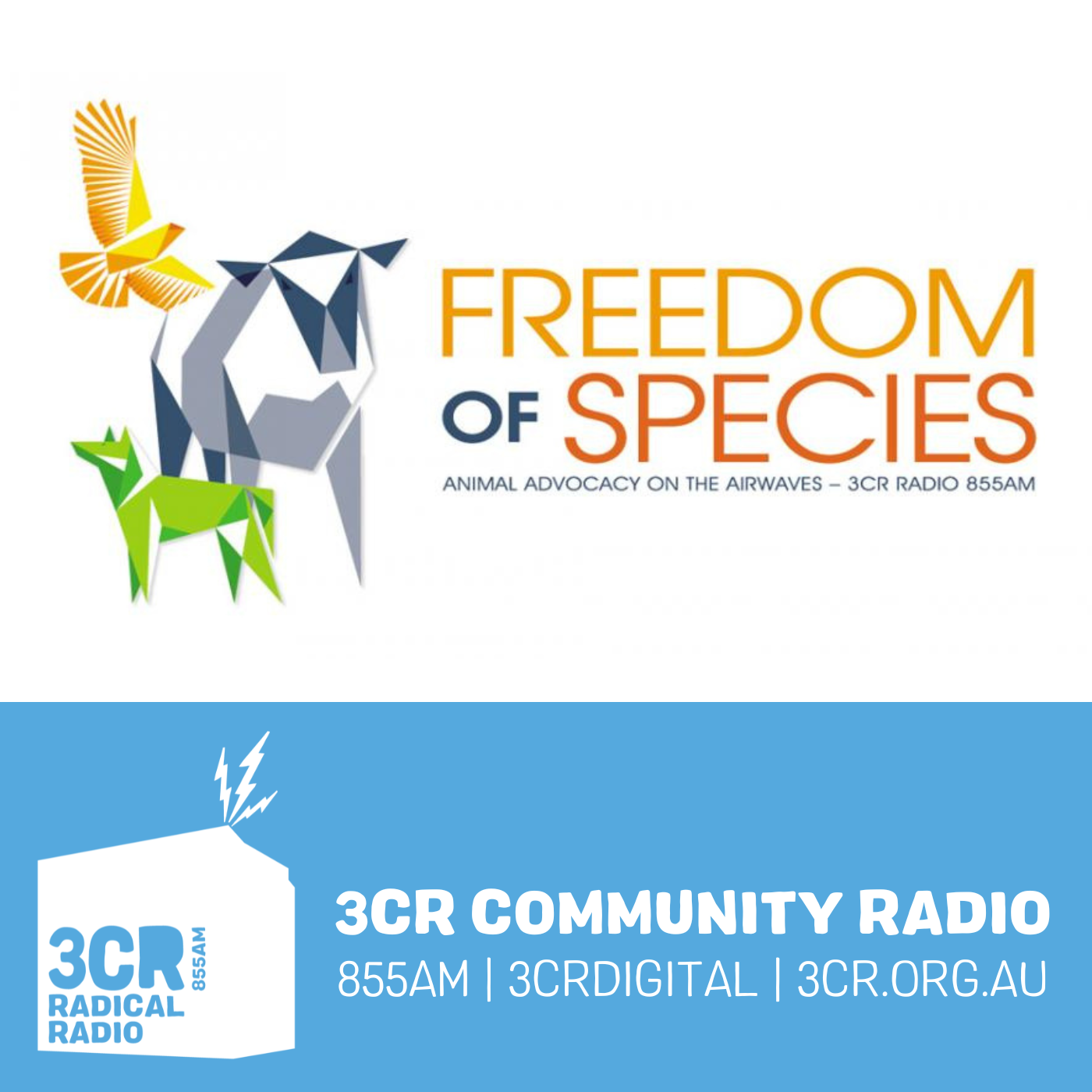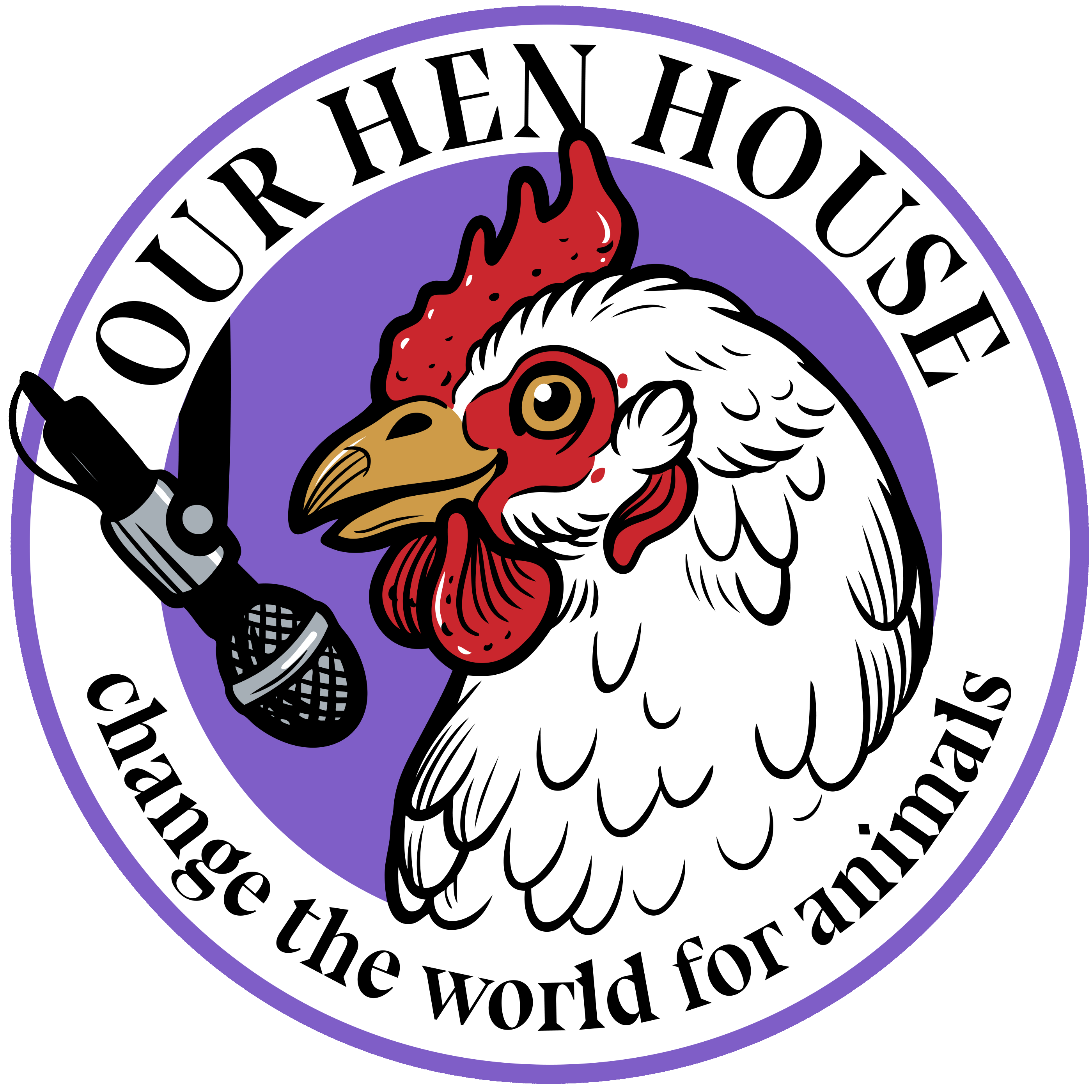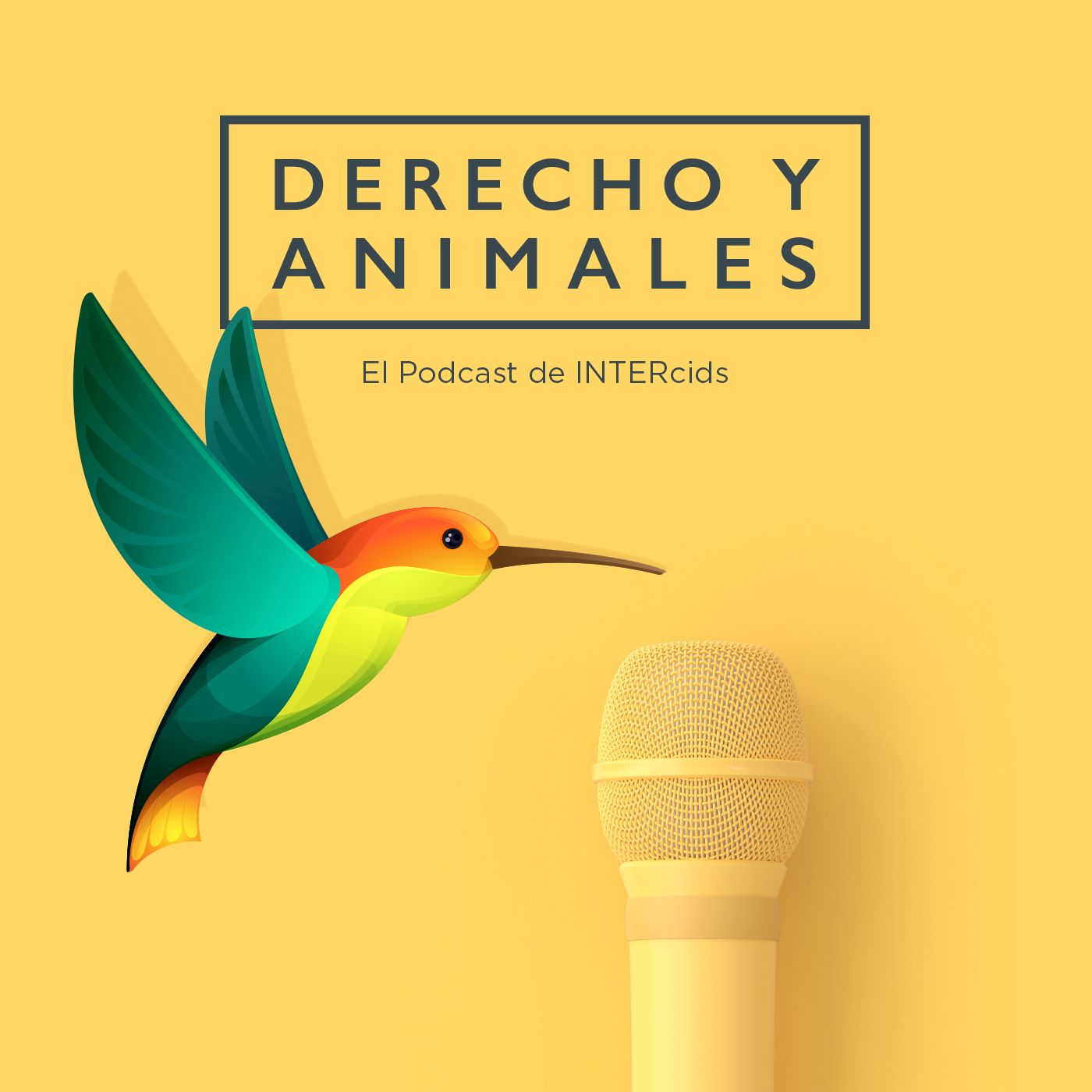The Animal Turn
Animals are increasingly at the forefront of research questions – Not as shadows to human stories, or as beings we want to understand biologically, or for purely our benefit – but as beings who have histories, stories, and geographies of their own. Each season is set around themes with each episode unpacking a particular animal turn concept and its significance therein. Join Claudia Hirtenfelder as she delves into some of the most important ideas emerging out of this recent turn in scholarship, thinking, and being.
The Animal Turn
S5E1: Biosecurity with Steve Hinchliffe
Claudia launches season 5 of The Animal Turn with a conversation on biosecurity with Steve Hinchliffe, a renowned geographer. They discuss how biosecurity is centered on the idea of keeping life safe and how this often operates through spatial logics of trying to keep threats out. They touch on how animals are often blamed for biosecurity threats, questions about whose lives are kept safe, and the various walling work that is done under the banner of biosecurity.
Date Recorded: 21 September 2022
Steve Hinchliffe is Professor of Human Geography at the University of Exeter, UK and a Fellow of the Academy of Social Sciences. His books include Pathological Lives (2016, Wiley Blackwell) and Humans, animals and biopolitics: The more than human condition (2016, Routledge). He currently works on a number of interdisciplinary projects on disease, biosecurity and drug resistant infections, focusing on Europe and Asia. He is a member of the Wellcome Centre for Cultures and Environments of Health at Exeter, and sits on the UK Government’s Scientific Advisory Committee on Exotic Diseases and on the UK Department for Environment, Food and Rural Affairs Science Advisory Group’s Social Science Expert Group. Find out more about Steve on Exeter’s website.
Claudia (Towne) Hirtenfelder is the founder and host of The Animal Turn. She is a PhD Candidate in Geography and Planning at Queen’s University and is currently undertaking her own research project looking at the geographical and historical relationships between animals (specifically cows) and cities. She was awarded the AASA Award for Popular Communication for her work on the podcast. Contact Claudia via email (info@theanimalturnpodcast.com) or follow her on Twitter (@ClaudiaFTowne).
Featured:
For Space, by Doreen Massey; Walled States, Waning Sovereignty, by Wendy Brown; Cow, a movie directed by Lin Gallagher; Pleasurable Kingdom: Animals and the nature of feeling good by Jonathan Balcombe;
A.P.P.L.EAnimals in Politics, Law, and Ethics researches how we live in interspecies societies and polities.
Biosecurities Research Collective
The Biosecurities and Urban Governance Research brings together scholars interested in biosecurity.
iROAR Network
iROAR brings together podcasts that aim is to make the world a better place for animals.
Disclaimer: This post contains affiliate links. If you make a purchase, I may receive a commission at no extra cost to you.
The Animal Turn is hosted and produced by Claudia Hirtenfelder and is part of the iROAR Network. Learn more on our website.
- Leave a Review on Podchaser
- Check out The Animal Turn Merch.
- Support us on Patreon, Buy Me a Coffee, and Buzzsprout.
S5E1 – Biosecurity with Steve Hinchliffe
00:00 – Introduction
- Welcome to Season 5
- Thank you to our sponsors and for everyone who helps make this podcast possible.
06:52 - Welcome
- So how do I pronounce your name?
- Intention of the season is to give an overview of biosecurity and why animal studies scholars should focus on this.
- But let’s get a bit of background
- Steve is a more-than-human geographer
- Social sciences started to extend the remit to think about human relations with others but always had a passion for animals
- BSE or “Mad Cow Disease” and its impacts influences Steve and he started to ask how animals are kept in industrial food systems
- Did a fair bit of work with urban nature, especially the plight of urban animals and green space
- Farm animals is one of my main interests as well as how diseases cut across
- Prolific writer and an interest in multiple scales that animals face
12:51 - What is biosecurity?
- The simplest definition is “The practice of making life. So, how do we make life safe”
- Influenced by Doreen Massey to think seriously about space
- A spatial argument that is key to a lot of my work is how we make life safe. A conventional method involves trying to keep things out. This is a dominant social way of thinking about biosecurity with animals. They try to keep animals separate.
- Poultry farmers will tell you that they are doing biosecurity, massive avian influenza outbreak at the moment
- “Keeping things out isn’t the only way of keeping life safe, you also have to think about what you keep inside,” Steve
- Look at COVID and how it has led to a failure to pick up early signs of cancer as well as metal health issues
- “You need to think carefully about what is going on inside, what are you containing?” Steve
- “We tend to get the balance wrong between inside and outside if we just focus on the barriers,” Steve
17:19 - Birds and Disease Risk
- Used to swab wild birds to see if there was a threat of transmission from wild birds but today wild birds are extremely impacted by the wild birds – The wild birds are no longer the threat, they are at risk probably because of farms
- More and more birds are being killed in farms, the biggest biomass of birds that the planet has ever had
- Viruses have evolved from pigs and birds
- “Viruses trade their genes like sweets”…”There are all sorts of tricks up their sleeve”, Steve
- We need to think about “what is the risk of our food system” to the rest of life
20:43 - Activists, Biosecurity, and Farm Safety
- Activists blame industry for producing disease and industry blames activists for biosecurity threats
- To what extent do we allow our science to be already committed to certain versions of what a good animal life is
- Biosecurity will involve farming far fewer animals and in a much different way
- Some biologists say that intensive farming is the only way to make life safe but for Steve, “that’s the way you make pathological bombs”
- “The idea that humans are in control…is a very old one”, Steve
- Unsettling the inside/outside
- There are not enough farm workers and they often share industrial labour across different farms
- Transmission is happening within and between farms, not necessarily wild birds, and its partly because they are sharing labour.
- Easy to blame wildlife and birds, easy narrative to sell
- Biggest outbreaks in North America were happening in meat packing facilities and the threat of disease is uneven
- Parallel between human and animals lives who are being intensively exploited
26:59 - Blaming Wild Animals (Badgers)
- Badgers are an iconic species
- Badgers were blamed for TB
- When discussing disease: we tend to focus on the movement of the pathogen, you have to be infectable, the environment
- If you grow chickens at 90 miles an hour you are messing their immune systems
- TB was always a disease of the poor
- Why are we blaming wildlife if we are not focusing on who is infectable.
- What is going on inside those barns that make some animals more infectable
- The worst thing you can do to a badger is to kill them because they will start wandering, have fights, and spread TB. Killing badgers set off a cascade effect moving over wider areas of the county
- The simple idea of killing animals to protect the animals we want to eat has surely been proven short sighted
28:02 - Epidemiology
- In epidemiology we think of the pathogen, what make that and why is it emerging
- Second consideration is host, is the host susceptible to disease (a lot of the ways we keep animals has made them more vulnerable)
- Thirdly, the environment, what is it about hosts and the environment that they are living in
- And the important interaction between these
- Pathogen, host, environment
34:56 - Security and whose life?
- “When you say making life safe, whose life are we actually talking about?” Claudia
- Security is massive
- Biosecurity is not biodefence
- Defence, how can we defend ourselves from pathogens from coming from over there. I know my enemy and I want to keep it over there.
- Foot and Mouth important disease when thinking about global geopolitics
- Security is different, it is about the regulation of movement. They don’t want to keep you out but they want to check you out. About regulating and measuring movement. Are you a safe passenger?
- “Biosecurity is increasingly perhaps also becoming this way of making life safe in order that it can be moved and be traded and this is about big money now,” Steve
- Defence is easier to imagine than security because security is never perfect, move from facts to probability which opens up different worlds
- “Whose life?” is a really important question but life is an ambiguous and expanding term
- Onehealth starting to open up more radical ways of thinking about our interrelationships – The idea that we can optimize all life is an illusion
40:58 - Keeping life safe vs. taking life seriously
- The idea of safety has fuzzy edges
- “I would much rather be like to take life seriously. To take the life of the cow, an individual cow among 10,000 cows in a feedlot. What would it mean to take their lives seriously and the experience of what their life has been?” Claudia
- Jumping between individual and these giant structures
- To take life seriously is a different kind of question
- Trying to keep life sometimes creates new issues, “new systems of dealing with crap,” Claudia
- Safety ends up being both too broad and too narrow
- Safety can distract us from the key political questions
- Animal rights people are the ones taking life seriously
- One of the problems of biosecurity is that it has been defined by vets and they are structurally bound to system of exploitation
- Massively complicated questions
45:20 - Recap, Technology and Trade
- Tension between safety and risk as well as inside and outside
- Different levels of consideration: pathogen, host, and environments (their relations)
- Biosecurity and thinking about whose life matters
- Think about buzz words life safety and one health
- Would add - Be careful of how words are being co-opted – high-tch gets co-opted as high welfare. Being used to do more of the same
- Facial recognition technology of pigs in China
- Industry using emotion words
- Trade and how countries are changing and crating special units to trade
- “Cow” The film, no dialogue and you get inside the cycle of farming for the cow. The beauty of the film is when the cows go out the pasture
- The joy of going out to pasture
- Senses to measure things are bullshit unless that cows get to experience this
- Jonathan Balcombe, one thing to think about suffering and another to think about joy
53:28 - Quote – Wendy Brown
- From a political theorist writing about migration from Mexico to the U.S.
- Wendy Brown, “Walls are a testament to an ongoing and inevitable failure. They are the last attempt to shore up a failing sovereignty consecrating the very bounded corruption they would contest”
- You build walls when you are failing
- The more you try to create an outside and an inside the more you consecrate the traffic you would like to contest
- Whenever you see a wall or a boundary, just question it, why is it necessary and what happens when it fails
- We operate with boundaries and physical space which is different when you try to create a stable wall
- South Africa, threat and risk and how walls feed into feelings of distrust
- Borders are not us simple as putting something up and keeping something out
- The idea of anything goes is crazy and will create problems too
- Walls can create a denial of the problem and when the problem arises you might lake the mechanism you need to deal with it
- Fences around airports – constant boundary work because animals are innovative
- Actor Network Theory says you should turn everything into a verb, when you see a wall you should say “walling”
58:16 - Aquaculture in Bangladesh
- Working a lot on antimicrobial resistance, we use too many antibiotics on these birds and fish
- More diseases in tropical environments and so they are told to make their farms biosecure, they have to do that walling work
- Trying to export US technology to a different environment, environmentally and economically problematic
- “This version of biosecurity of walling in and walling out life its being exported around the world to countries that can just not think about doing that,” Steve
- High tech, high cost, high risk
- How science and expertise is used and mobilized against other ways of knowing
- Walling work happens at a variety of levels, national and international levels, discursively and physically
- “Are we having conversations about how we can keep them well until they are killed or are we have conversations about how they can live good lives and those are very different conversations,” Claudia
01:01:45 - What are you working on now?
- Still working on biosecurity
- Increasingly writing about OneHealth and critiquing some of the ways it is used
- Looking at aquaculture and the use of anti-biotics and goes to looking at whose expertise matters
- Experts viewed farmers tinkering with ponds as introducing disease, all risk was suddenly in one place
- You need social science to better understand agro-ecology and how livings are made, need to better listen
- Increasingly thinking about the issue of infectability, need to think about what we are doing to all our bodies to make us so vulnerable to every bug that comes along
- Need to get away from the mindset that disease is only about the virus, disease is about susceptibility
- Move away from simple solutions for complex problems
- As social scientists we need to get better at ways of communicating, seriously, that you won’t solve the problem, unless..
- Communicating in a way that is more nuanced but accessible
- University of Exeter and part of the Wellcome Trust Center for Cultures and Environmental Health
01:08: 56 – Animal Highlight Turkeys
01:21:19 – Closing
Podcasts we love
Check out these other fine podcasts recommended by us, not an algorithm.

The Animal Highlight
Claudia Hirtenfelder
Knowing Animals
Josh Milburn
Species Unite
Species Unite
The Deal With Animals with Marika S. Bell
Marika S. Bell
The Other Animals
Laurent Levy
Beyond Species
Beyond Species
The Anthrozoology Podcast
Anthrozoology Podcast
Freedom of Species
The Freedom of Species Team
Our Hen House: Vegan & Animal Rights Movement | Stories from the Frontlines of Animal Liberation
Jasmin Singer and Mariann Sullivan
Derecho y Animales
Derecho y Animales
Storytelling Animals
Dayton Martindale
Species
mackenmurphy.org
Animal Law Matters
K & R Animal Law
The Humanimal Connection
Humanimal Trust
The Animal That Changed You
Katya Lidsky
Think Like a Vegan
Emilia Leese
The Shifting Lens: Viewing the Animal Experience
Tiamat Warda Rebecca Madrid
The Salmon People
Canada's National Observer
Comme un poisson dans l'eau
Victor Duran-Le Peuch
.png)


